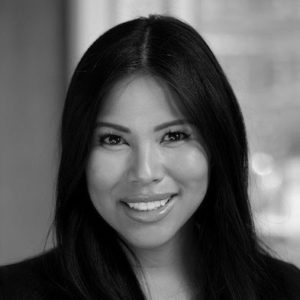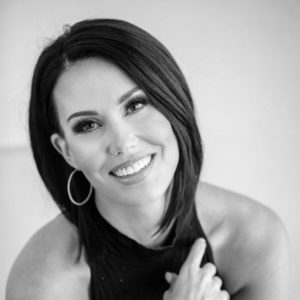For Women’s History Month, we interviewed four of Tribal EM’s outstanding female leaders. Below, they talk about the transformation they’re creating in healthcare and the women who’ve inspired their achievements.
Brenda Rojas, Chief Nursing Officer

During Brenda’s 25-year career in healthcare, she’s seen many industry changes in terms of gender and leadership. Today, as a C-suite executive and active clinician, she is instrumental in shaping successful programs at tribal facilities – and has a foot in both healthcare strategy and hands-on practice. “When I started, I didn’t see too many women in this type of leadership position,” she said. “It was all men. So as a minority and a female, I’m inspired now to be an example of change and show that women can do this – whether it’s by being a supportive resource, mentoring women at work, or encouraging their education.”
Her commitment to improving the patient experience was partly inspired by a woman she worked under in Maricopa County, Arizona. “My manager’s drive and willingness to make change and put patients first were so inspiring,” Brenda recalled. “She was always asking, ‘What can we do to make this better?’ I embrace change too, from process development to care delivery to time management. It’s about continuous improvement.”
Brenda’s advice for women healthcare leaders is to stay visible and get in the trenches with their team to identify deficiencies and opportunities. “Don’t be afraid to jump in, test processes, and figure out what’s needed,” she said. “You’ll see things firsthand, like when I worked the floor and discovered a broken crib that hadn’t been used in months. Working in the trenches makes such a big difference in leadership.”
Timian M. Godfrey, Clinical Assistant Professor, DNP

A member of the Navajo Nation, University of Arizona professor, and a Board-Certified Family Nurse Practitioner with a doctoral in Nursing Practice, Timian has provided emergency healthcare in underserved communities for over six years. “I’m proud to be a member of a team that’s grounded in scientific and cultural rigor,” she said of her work with Tribal EM. “I fell in love with Tribal EM, especially the team’s cultural humility, which is a necessity when you enter a tribal community. We learn from the people we serve as much as we provide excellent medical care, and they’ve made a tremendous impact on my life.”
Timian’s mission is creating equitable higher education opportunities for Indigenous people. To that end, she is earning a second doctoral degree, directs 2 grant programs to diversify the nursing workforce, and is involved with legislative efforts to establish an Arizona Health Education Center tailored to meet the needs of tribal communities.
So who inspires all these amazing accomplishments? The first woman Timian named was her mother, a Navajo woman from Shiprock, NM. She also named our own COO Morgan Haynes (featured below) and Dr. Teresa Brockie, a member of the White Clay (A’aninin) Nation and her professor at John Hopkins School of Nursing. Dr. Brockie’s research focuses on achieving Indigenous health equity through community-based prevention and intervention of suicide, trauma, and adverse childhood experiences. “She opened my eyes to the world of Indigenous science and medicine,” Timian said.
Morgan Haynes, Chief Operations Officer

An operations expert in private, public, and federal healthcare systems, our COO Morgan Haynes was instrumental in founding Tribal EM. In fusing modern healthcare models with culturally informed care in tribal communities, she’s led Tribal EM to rapid year-over-year growth. She also serves as advisor to telemedicine leader MeMD and healthcare consultancy Shufeldt Consulting and is a passionate advocate for the medical ketogenic diet in managing intractable epilepsy. In addition to all of that, she mentors young women in business and is currently completing an Executive Master of Business Administration (EMBA) program at ASU.
“I think we’re in such a pivotal time for women in business, where women are taking the reins, breaking through old barriers, and achieving their ambitions,” Morgan said. “The path to leadership isn’t always easy, but what makes women so remarkable is that we champion each other. There are many female trailblazers who’ve inspired me, and now I try to provide similar guidance for women forging their own career path.”
Based on Morgan’s myriad achievements, you might guess one of her chief values is growth – both personal and professional. So it’s not surprising that she named Amelia Earhart, the embodiment of freedom, courage and self-actualization, as an inspiration in Women’s History Month. Earhart, who said “There’s more to life than being a passenger,” set women’s speed and altitude records, and was the first woman to fly nonstop coast to coast and to fly solo across the Atlantic. She was also a best-selling author who founded the Ninety-Nines, an international organization dedicated to female pilots.
Enrolled as a Columbia University pre-med student before the skies claimed her, Earhart was a passionate advocate for women’s rights and education. “One of my favourite phobias,” she said, “is that girls, especially those whose tastes aren’t routine, often don’t get a fair break.” As someone who studied auto mechanics, aviation, and medicine, Earhart encouraged women to pursue careers in male-dominated fields.
Natalia Solenkova MD, PhD FACP

An industry leader in intensive care, Dr. Solenkova is committed to improving patient safety, quality of care, public health strategy, and access to care in underserved communities. “I’ve seen unbelievable inequality in patient care while practicing medicine in poor urban and rural areas,” she said, something that has intensified her interest in Civil Rights. Originally from Siberia, she stated that “many great influential females affected my professional path, my world outlook, my personal and career choices. Being an immigrant female myself, I have always looked up to females who represented immigrants or other minority groups as they became my source of encouragement and hope, my compass guiding me to my best choices, especially in very difficult situations.”
One leader who inspires her is Madeleine Albright, a woman also born in Eastern Europe who became the first female Secretary of State. “Her story always gave me hope, especially in challenging moments of my own career,” Dr. Solenkova said. “During my naturalization ceremony, we got to listen to an address from the President of the United States, which was expected. However, I broke into tears as the next person to address the candidate to American citizenship was Madeleine Albright.”
For Women’s History Month, Dr. Solenkova also named Dr. Rana Awdish and Dr. Patrice Harris as “the most influential female doctors in our times.” A critical care physician, Dr. Awdish became a passionate patient advocates after her own traumatizing critical care patient experience. It shaped her own practice and sparked her advocacy. “She is a big proponent of humanizing ICU care,” Dr. Solenkova said. “I look up to her a lot, choosing the way I practice critical care.”
Dr. Harris is the first African American female President of the American Medical Association. “In the last several years, I got involved in policy advocacy work with several medical societies, including AMA,” she said. “Being often a subject of implicit bias – including in professional societies – it was very important to me to see a female physician representing a minority group to become the President of the most powerful medical organization in the United States.”
Women’s History Month may be 31 days, but women make history every day. Who inspires you?

